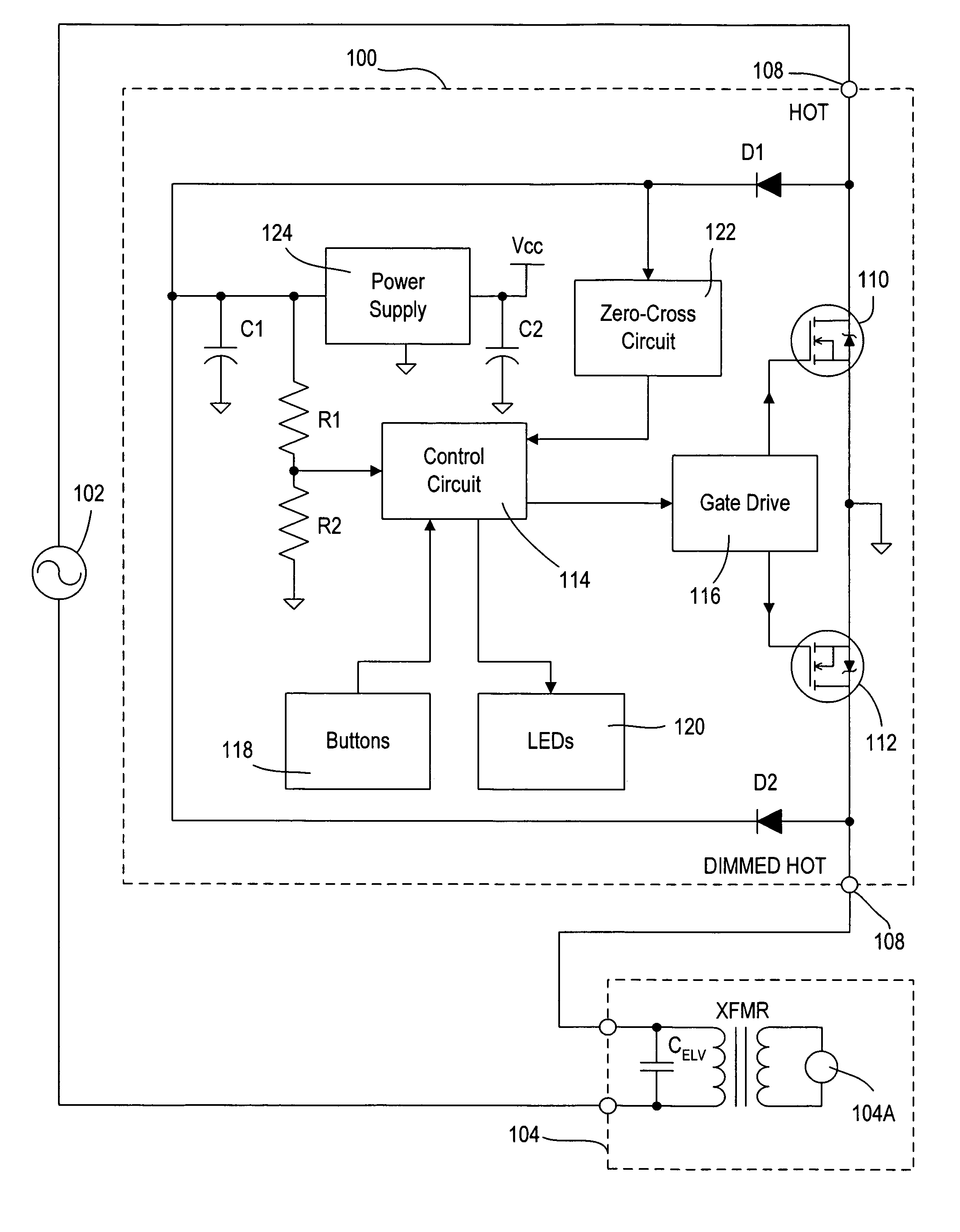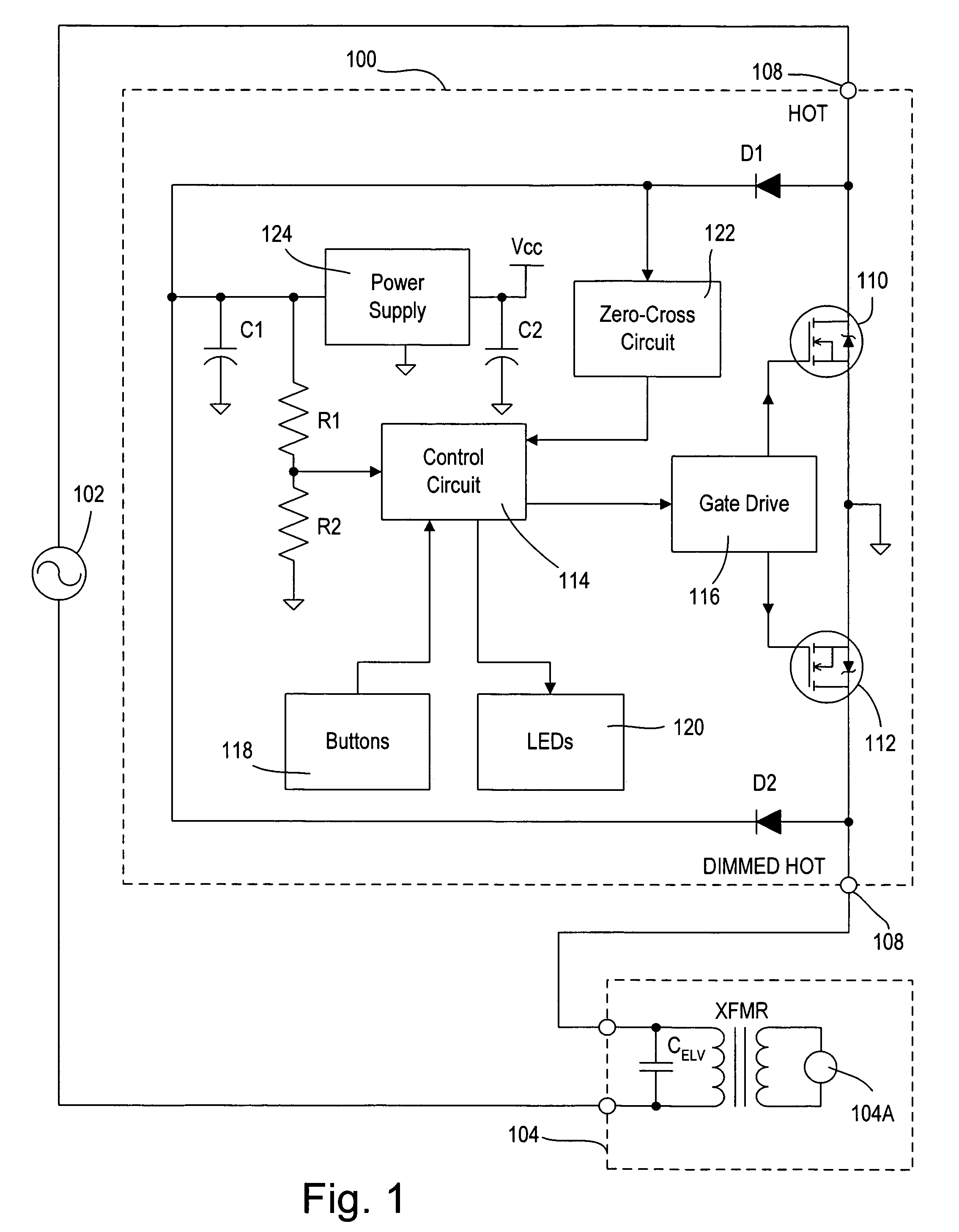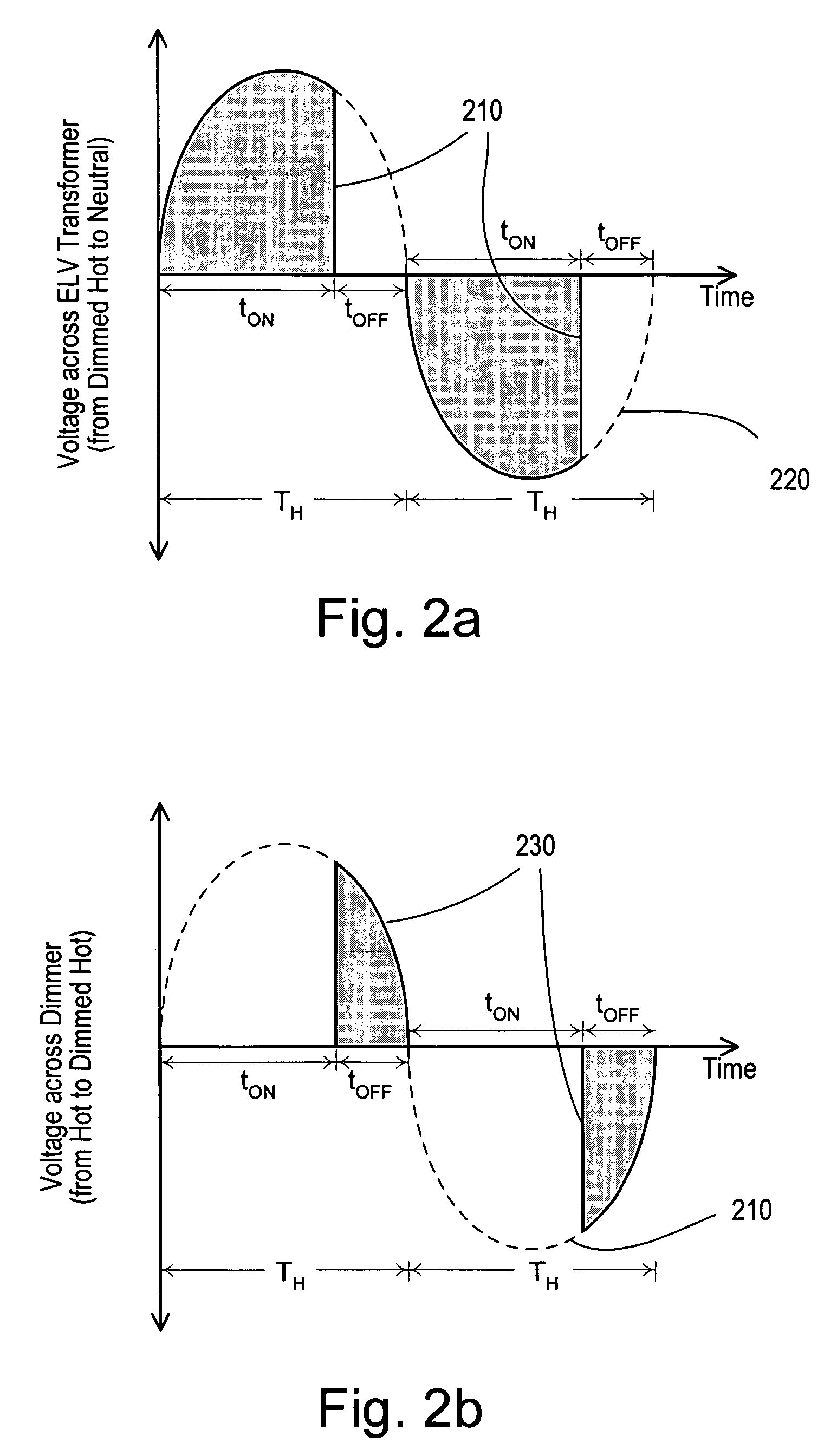Dimmer having a power supply monitoring circuit
a monitoring circuit and dimmer technology, applied in the direction of electric variable regulation, process and machine control, instruments, etc., can solve the problems of small dimming range, inability to turn on the fets for the entire length of a half-cycle, and higher intensity of the load that is closer, so as to reduce the on-time and increase the on-time
- Summary
- Abstract
- Description
- Claims
- Application Information
AI Technical Summary
Benefits of technology
Problems solved by technology
Method used
Image
Examples
Embodiment Construction
[0016]The foregoing summary, as well as the following detailed description of the preferred embodiments, is better understood when read in conjunction with the appended drawings. For the purposes of illustrating the invention, there is shown in the drawings an embodiment that is presently preferred, in which like numerals represent similar parts throughout the several views of the drawings, it being understood, however, that the invention is not limited to the specific methods and instrumentalities disclosed.
[0017]FIG. 1 shows the two-wire dimmer 100 of the present invention, which is connected in series between an AC power supply 102 and an ELV lighting load 104. The dimmer 100 has two connections: a HOT connection 106 to the AC power supply 102 and a DIMMED HOT connection 108 to the lighting load 104. Since ELV loads operate at a low-voltage level (such as 12 volts or 24 volts), a step-down transformer XFMR is required for the ELV lamp 104A. The ELV transformer XFMR is typically c...
PUM
 Login to View More
Login to View More Abstract
Description
Claims
Application Information
 Login to View More
Login to View More - R&D
- Intellectual Property
- Life Sciences
- Materials
- Tech Scout
- Unparalleled Data Quality
- Higher Quality Content
- 60% Fewer Hallucinations
Browse by: Latest US Patents, China's latest patents, Technical Efficacy Thesaurus, Application Domain, Technology Topic, Popular Technical Reports.
© 2025 PatSnap. All rights reserved.Legal|Privacy policy|Modern Slavery Act Transparency Statement|Sitemap|About US| Contact US: help@patsnap.com



